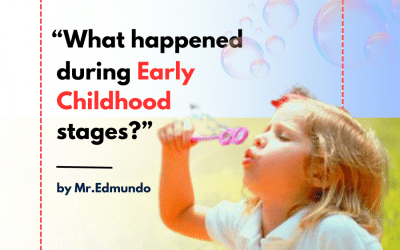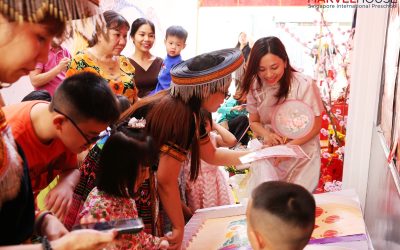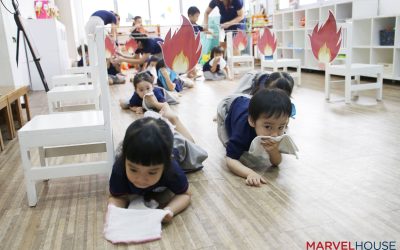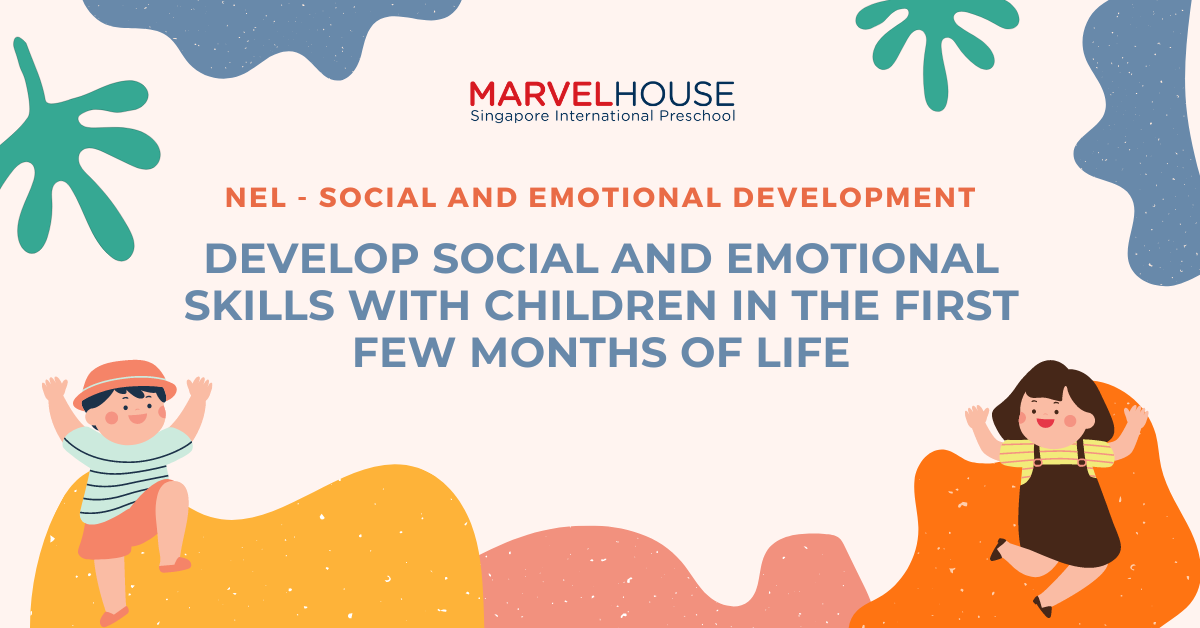
Instructors must provide a safe environment in which students may explore their identities and express their emotions, including anger and fear. Children must develop a good self-concept in connection to their peers, family, and community. They will begin to create meaningful interactions with others as they get a greater awareness of themselves.
Social and Emotional Development relates to children’s awareness of their personal identity and ability to:
- Manage their own emotions and behaviors
- Show respect for diversity
- Communicate, interact and build relationships with others
- Take responsibility for their actions
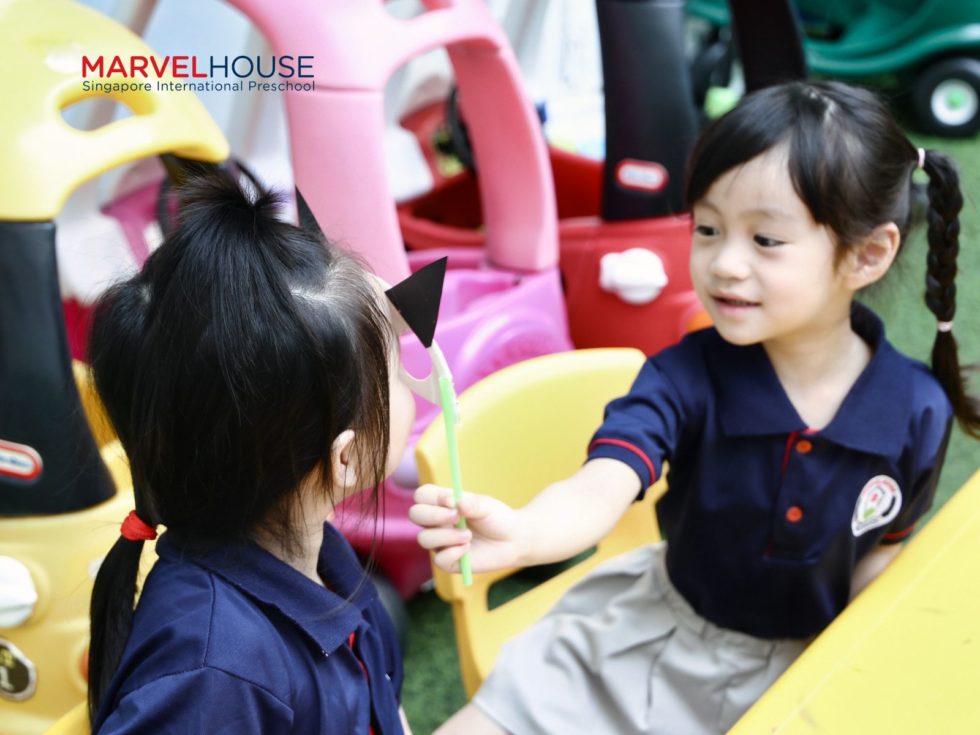
What is the Purpose of Teaching Children to Develop Social and Emotional Skills?
Toddlers will gain confidence and a good self-concept as they build on their talents and abilities. They learn to regulate their emotions and actions when they have a strong sense of self identity. When toddlers acquire self-awareness, they may recognize their own talents and skills. This allows them to form healthy connections with others and make responsible decisions.
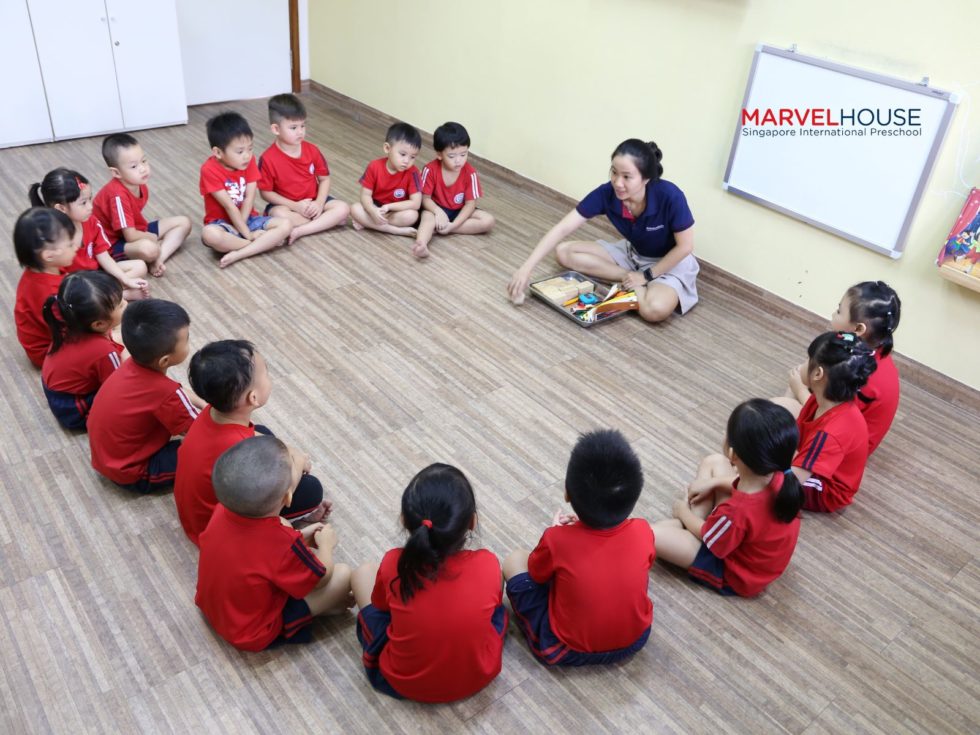
Thus, the social and emotional skills emphasized in the pre-school years include:
- Self-awareness and Positive Self Concept: Children who appreciate their own strengths develop a good self-concept and self-worth. They will be able to discern their likes and dislikes, as well as what they can and cannot do. They can recognize their feelings and express them to others, for example, during “Show and Tell”.
- Self-management: Children must learn fundamental self-management skills such as being aware of their emotions and understanding that some emotions, such as happiness, kindness, and love, may be shared with others. They will also learn how to regulate unpleasant emotions such as anger, jealously, and fear in a socially acceptable manner.
- Social Awareness: Children that are socially aware can identify the sentiments and viewpoints of others, as well as accept and respect people despite of differences. Special activities that allow children and families to dress up in costumes representing their cultures, share information about ethnic foods, and celebrate festivals assist to enhance children’s knowledge of the unique customs and values of other cultures.
- Relationship Management: Children must understand that there are many possible outcomes to a tough situation and that they have a role to play in managing those outcomes. Children should be provided opportunity to address issues and resolve disagreements. Children may assist to establish classroom and game rules so that everyone learns to collaborate and take turns in order to accomplish activities and games.
- Responsible Decision-making: Making decisions teaches youngsters to accept responsibility for their own actions. It enables them to settle their difficulties in a sensitive and mutually beneficial manner. Children who are taught to reason and explain their reasoning are more inclined to evaluate the repercussions and consequences of their actions. Teachers should assist students in doing things for themselves rather than do things for them.

